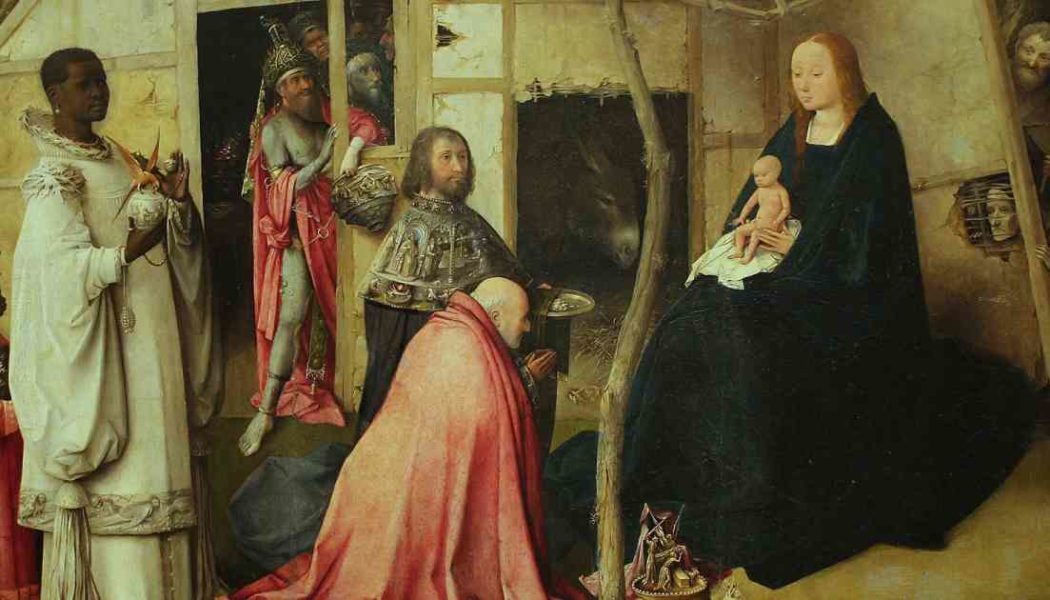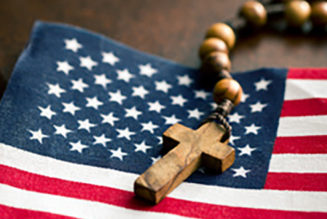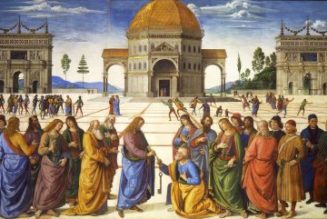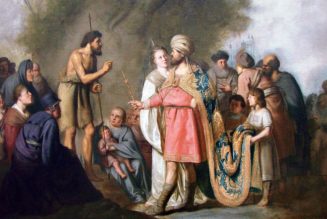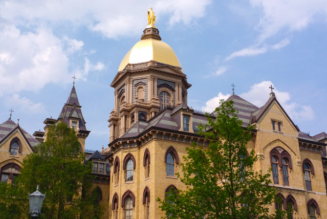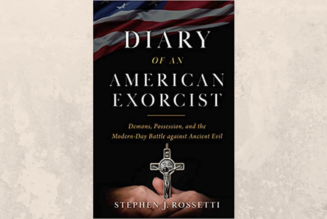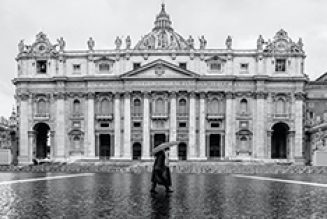
We are all on a journey to find Christ in the darkness, and there is no better model to follow than the magi on The Epiphany of the Lord this Sunday.
Because the fact is, the magi needed several things to find God: years of study, an arduous journey, and the willingness to utterly demean their own self-importance. And they needed to know that they were seeking something so crucial that it was worth all that.
What could possibly be worth all that? Nothing less than the one power that makes human life bearable, according to St. John Paul II. But we’re getting ahead of ourselves.
First, the Wise Men needed years of investigating the physical universe: Of knowing the world as they found it.
St. John Chrysostom wrote about how God attracted the magi to worship the newborn king not by doing miracles, but through natural phenomena.
“What should he have done? Sent prophets?” he asks. “But the magi would not have submitted to prophets. Uttered a voice from above? No, they would not have listened. Sent an angel? But even him they would have hurried by.” Instead, says Chrysostom, “dismissing all those means, God calls them by the things that are familiar, in exceeding condescension; and he shows a large and extraordinary star, so as to astonish them, both at the greatness and beauty of its appearance, and the manner of its course.”
God has been calling people in all places and all times through the grand design apparent in his universe. But in a special way in the centuries leading up to his incarnation, the whole world had its eyes on the order of the cosmos — the logos.
About 500 years before Christ, Confucius and Lao Tzu in China were driven to help human beings live according to the order of the universe, or the “Tao.” Plato and Aristotle at around the same time were trying to understand the logos so as to live in conformity with it. The centuries before Christ saw the rise of the Romans who actively tried to apply physics and philosophy to the physical and legal infrastructure of their empire.
God put the same neon sign in the sky for all of them to see, the Star of Bethlehem, inviting them to seek out what had gone wrong. The magi noticed and followed because, as they put it: “We saw his star at its rising and have come to do him homage.”
They alone had what it took to read the sign: a hunger for deeper meaning alongside an intricate knowledge of the stars.
But the star didn’t get them all the way to Jesus. They needed help for that.
After the wise men visited Herod, he assembled the “chief priests and scribes” — those who know Scripture thoroughly. Herod asked them “where the Christ was to be Born” and they cited Scripture to say “In Bethlehem of Judea.” Herod passed their answer on to the magi.
The Wise Men listened and went to Bethlehem, and when they got there, the evidence of the star and the Scriptures aligned. But they couldn’t get there on their own. They needed the magisterium — at any rate, the Mosaic magisterium of the chief priests and scribes.
It’s significant that they listened even to religious leaders who were morally compromised. These were chief priests and scribes who were willing to cozy up to the wicked King Herod — and chief priests and scribes who, though they knew the savior was to be born in Bethlehem, did nothing to seek him out and, presumably, did nothing to stop Herod from trying to kill him.
Many of us today refuse to listen to the Church because we see how cozy some of its leaders have been with the wickedness of the world. We are right to be scandalized, but we make an error when we assume — in practice, at least — that the wickedness of some Catholic leaders is a sign that God has abandoned the Church and that it is no longer a trustworthy source of truth.
We trust in the teaching office of the Church not because of the power and purity of men, but because of the power and purity of God, who always works through weak instruments.
Last, the magi do something extraordinary — and extraordinarily undignified.
They do homage to a baby. Their actions and their gifts show just how much they understood:
- They prostrate themselves in front of the child, showing that they understand his divinity.
- They give him the royal gift of gold and the religious gift of frankincense, showing that they acknowledge him as king and priest, says St. Thomas Aquinas.
- They also give him myrrh, used in burying the dead, acknowledging his humanity, he adds.
Their actions and gifts sum up the identity of Jesus Christ in a way that will take decades for others to see, and they show their acceptance of it by being willing to compromise their dignity but refusing to compromise their principles.
This is exactly what the Scriptures said would happen.
The Church chooses Scripture passages for the Epiphany Mass that show how it was prophesied that the entire world will come to discover what has been revealed to the Jewish people, just like the Wise Men did.
In the short term, the First Reading says, Gentiles will see the greatness of the God of Israel. “Caravans of camels shall fill you, dromedaries from Midian and Ephah, all from Sheba shall come bearing gold and frankincense, and proclaiming the praises of the Lord.”
If that short-term prophecy is fulfilled in the magi showing up with camels and frankincense, a longer-term prophecy is fulfilled in our own times: “Nations shall walk by your light, and kings by your shining radiance,” says Isaiah, and “Every nation on earth will adore you,” says Sunday’s Psalm. And indeed, today, Christianity is not just in every nation — but the light of Christian morality has changed morality worldwide.
People of all nations, whether they were shaped by the wisdom of Aristotle, Confucius, the Egyptians or Chaldeans, will now find their meaning in the precepts of the God of Israel — through the Scriptures of the Jews — whether they know it or not. St. Paul spells it out: “The mystery was made known to me by revelation,” he says, “that the Gentiles are coheirs, members of the same body, and copartners in the promise in Christ Jesus through the Gospel.”
That shows the next step we each need to take: Becoming children of God.
That is the true gift that was worth the quest of the magi, said St. John Paul II.
The Gospel ends by noting that, after being touched and changed by their encounter with the Holy Family, the magi “departed for their country by another way.” Every authentic encounter with Christ likewise changes our trajectory, every time.
In his first “Urbi et Orbi” Christmas address in 1978, John Paul explained what this changed trajectory looks like. “The Birth of the Incarnate Word is the beginning of a new power for humanity itself, the power open to every man,” he said — “‘power to become children of God’.”
To drive the point home, John Paul specified that he was addressing his message to “every human being; wherever he may work, create, suffer, fight, sin, love, hate, or doubt; wherever he may live and die; I address him today with all the truth of the Birth of God, with God’s message.”
John Paul wanted every human being to know that in Jesus Christ they could find their true end, becoming children of God, and he begged us to:
— “Accept the great truth concerning man;
— “Accept the full truth concerning man that was uttered on Christmas Night;
— “Accept this dimension of man that was opened for all human beings on this Holy Night.”
He added: “In spite of the fact that two thousand years separate us from his birth, he is always ahead of us, always goes before us. We must run after him, and try to reach him.’”
To run after him in the darkness, we need to take a journey like the magi’s.
Like them, we have to be humble students of the natural order, who investigate and appreciate what God gives us in the natural world.
We have to be docile to the wisdom of the Church, listening even to the chief priests and scribes who are too cozy with the wicked powers of the world.
And once we see where the truth leads, we have to give the hardest thing of all there is to give: Our own self-importance.
If we do, we will touch the greatest power available to us: The eternal power of God made man.
Frans Vandewalle, Flickr, Hieronymus Bosch, Adoration of the Magi.
